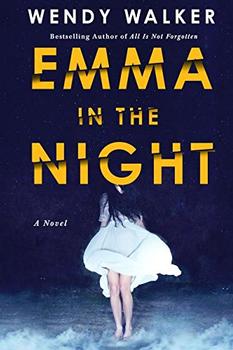Summary | Excerpt | Reading Guide | Reviews | Beyond the Book | Readalikes | Genres & Themes | Author Bio

Other fragments contain the sound of her voice as she screamed and thrashed around on her bed, tears wetting the sheets. Me hiding behind Emma. Emma staring quietly, studying her, making calculations. Waking up to our mother's elation. Waking up to her despair. I remember, too, this feeling I would have. It is not attached to any particular moment. It's just a memory of a feeling. Opening my eyes each morning, fearful because I had no idea what awaited us that day. If she would hug us. If she would brush my hair. Or if she would cry into her sheets. It was like trying to pick your clothes without even knowing what season it was, winter or summer.
When Emma was ten and I was eight, our mother's spell started to fade in the bright light of the outside world—the real world, where she was not that pretty, or that smart, or that good a mother. Emma had begun to notice things about her and she would tell me when she felt like it.
She was wrong, you know. It didn't matter what followed, whether it was some opinion our mother had about another mother from our school, or a fact about George Washington, or what kind of dog had just crossed the road. What mattered was that she was wrong, and every time she was wrong, our voices grew less sincere when we answered her.
Aren't I a good mother? The best mother you could ever want?
We never stopped saying the word. Yes. But when I was eight and Emma was ten, she knew we were lying.
We were in the kitchen that day. She was mad at our father. I can't remember why.
He has no idea how lucky he is! I could have any man I want. You girls know that! My girls know.
She busied herself with some dishes. Faucet on. Faucet off. The dish towel fell to the floor. She picked it up. Emma stood on the other side of a giant island. I stood beside her, my shoulder tucked in next to hers, and I leaned toward her so I could disappear behind her body if I needed to. Emma felt so strong to me then, as we waited to see which season it would be. Whether it would be summer or winter.
Our mother started to cry. She turned to look at us.
What did you say?
Yes. We answered as we always did when she asked us if she was the best mother.
We walked to her side, waiting for our hug and the smile and the sigh. But none of that came. Instead, she pushed us both away, one hand on my chest and one hand on Emma's. She studied our faces incredulously. Then she gasped, breath going in, not out.
Go to your rooms. Right now!
We did as we were told. We went to our rooms. I tried to talk to Emma, I remember asking her as we walked upstairs, Emma storming and me scurrying, What did we do? But Emma talked about our mother only when she wanted to—when she had something to say. The story of our mother would be written by her, and her alone. She pushed my hand from her arm and told me to shut up.
We did not get any dinner. Or any hugs. Or any kisses good night. The price for these things, for our mother's affection, went up that night and in the years that followed. The things we had to say and do to convince her of our admiration inflated the more we said and did them—inflated and also changed so that her love became scarce.
A few years later, when I was eleven, I looked up my name, Cassandra, when I saw it in a book about myths. It actually comes from Greek mythology, the daughter of King Priam and Queen Hecuba of Troy: "Cassandra had the gift of prophecy but the curse that her prophecies would never be believed." I stared at my computer screen for a long time. My mind had run away. Suddenly, the entire Universe made sense and it was all centered around me, how my mother had given me this name, but really it must have been fate. Fate, or God, or whatever—he had entered my mother's mind and put this name in her head. He knew what was coming. He knew that I would predict the future and that no one would believe me. Children have a way of believing in fantasies. I now know that my mother naming me Cassandra and what happened to us was nothing more than a random concurrence of events. But at the time, when I was eleven, I felt responsible for all that would happen.
Excerpted from Emma in the Night by Wendy Walker. Copyright © 2017 by Wendy Walker. Excerpted by permission of St. Martin's Press. All rights reserved. No part of this excerpt may be reproduced or reprinted without permission in writing from the publisher.
Your guide toexceptional books
BookBrowse seeks out and recommends the best in contemporary fiction and nonfiction—books that not only engage and entertain but also deepen our understanding of ourselves and the world around us.